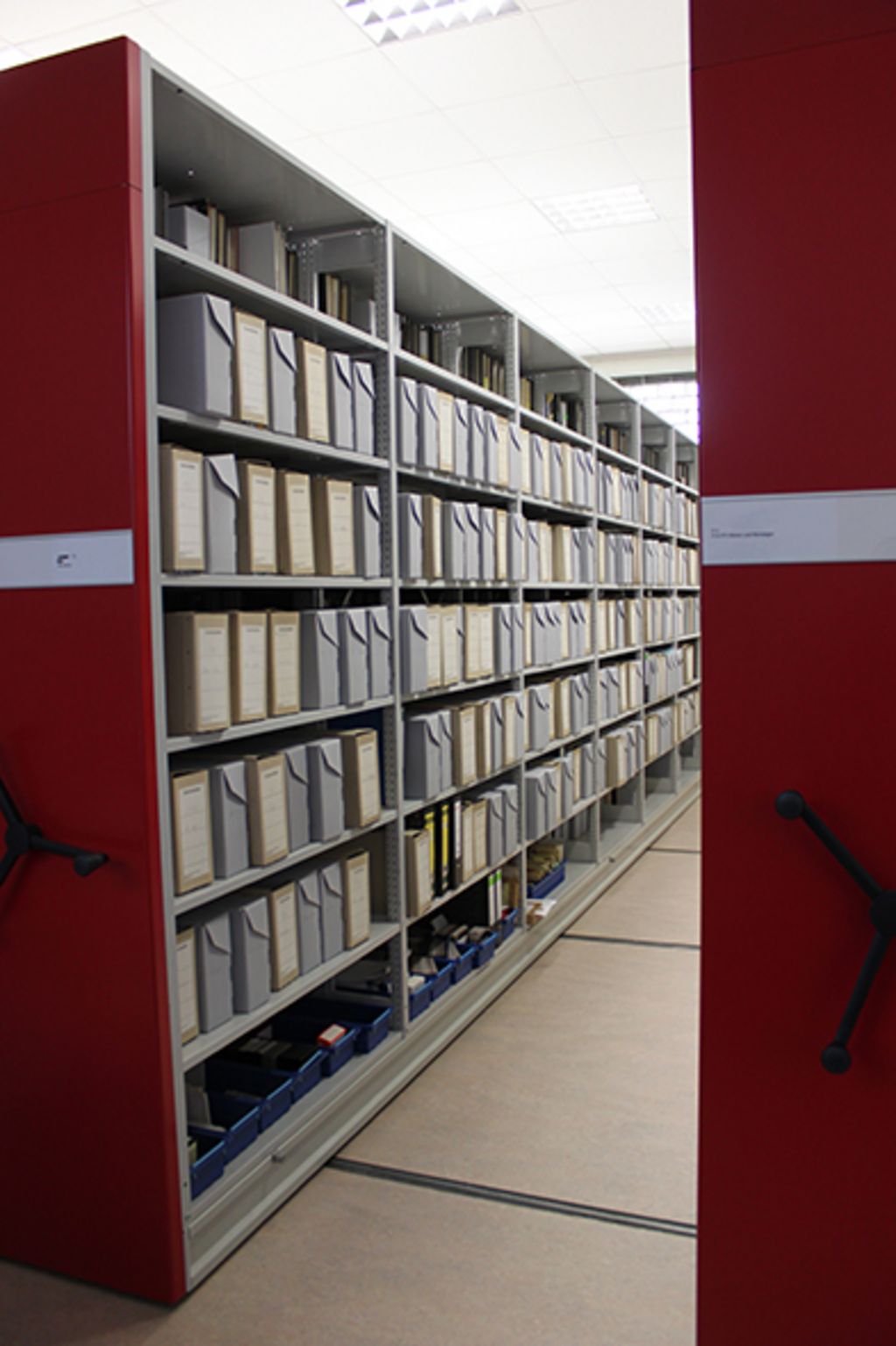The history and aims of the archive
First established in 1972, at this time the archive of Sachsenhausen National Memorial was not accessible to the public. After the founding of the Stiftung Brandenburgische Gedenkstätten in 1993 the archive and library were opened to researchers and the public in line with the aim of the Stiftung to make Sachsenhausen an open place of learning. In the beginning of 2000 Sachsenhausen's archive became a public archive according to county law (§2 Paragraph 8).
Collections
The archive contains
- collection describing the history of the National Socialist concentration camp Oranienburg (1933 - 1934), Sachsenhausen (1936 - 1945)
- collection describing the history of the Soviet special camp Nr.1 / Nr.7 (1945 - 1950)
- the files of Sachsenhausen's command structure taken from national and international archives are of special importance, unfortunately many of the documents have only survived as fragments
- collection of the 'Lagerarbeitsgemeinschaft Sachsenhausen' and the 'Komitee der Antifaschistischen Widerstandskämpfer der DDR'
- estate of individuals whose lives have been connected to the history of Sachsenhausen in some form
- administrative documents of the memorial and museum and its supporting institutions
The collections are searchable with an electronic database (EFB), as hard copy (FB) as part of a card system and partly also online. A large number of the files containing personal information are included in a database (DB). The archive shelves contain 430 metres of material (AE) - not including the administrative files from Sachsenhausen Memorial and Museum (GMS) - or the Stiftung Brandenburgische Gedenkstätten (SBG) which will also eventually form part of the archive in the future.
Using the archive
Anyone who wants to use the archive should apply by stating their theme, reason and/or the customer. After receiving a permission, signed by the archive's leader and head of the department for research, an appointment can be made with the archive's staff.
Fees are regulated by the Stiftung Brandenburgische Gedenkstätten and apply for large written applications as well as research and the retrieval of archived items, unless the user has been exempted from the payment of fees.
Due to the small number of staff the number of written research requests processed without charge in one calendar year has been restricted to seven concerning specific persons and three relating to any other subject. For the protection of privacy and contractual obligations there are a number of collections from which copies can not be made and others where copies can only be made under special circumstances. The maximum number of copies that can be ordered in one year or at one visit is 200.

